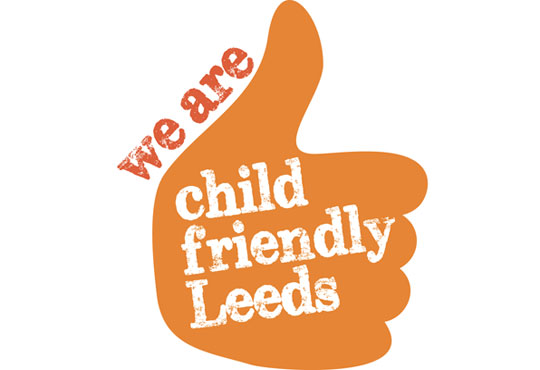In this months ‘Ask Mellownest’ column, Claire and Nneka give advice on preparing a toddler for the arrival of a new baby.
If you have a question for the mellownest team or want their advice on understanding your child’s behaviour or emotions please email info@mellownest.co.uk and your question can be put forward for next month (all questions are anonymous).
The mellownest team will be delivering their signature workshop, ‘The Science of Happy Children’ at Headingley Heart on the 10th of March and are offering a 20% ticket discount to Mumbler readers. Pick up your ticket here
 Dear Mellownest,
Dear Mellownest,
I’m currently seven months pregnant and I have a daughter who is 2 years and 4 months old. I’m starting to get a little nervous about having to manage two children but in particular how my daughter is going to respond to having a sibling. She’s really used to having me and her dad all to herself. Everyone (like her grandparents) keep telling her how excited she should be, and she often is but a few times she has told me that the baby should live somewhere else when it arrives! I just want to be able to still have time for her but I know how overwhelming having a newborn can be. Any advice gratefully appreciated.
Dear Mumbler member,
First of all, congratulations!
 Your worries about becoming a mum of two are understandable. It’s a big shift in the family dynamics but there are definitely a number of things you can do to make the transition a little easier for everyone.
Your worries about becoming a mum of two are understandable. It’s a big shift in the family dynamics but there are definitely a number of things you can do to make the transition a little easier for everyone.
Your daughter is still little and at under three is likely to still be getting to grips with the world around her. She does still need lots of time and attention to help her manage all of her feelings. That doesn’t however mean that all that time and attention has to come from you. It sounds like she has a good relationship with her dad and you have grandparents around to help which is wonderful.
Keep things consistent
I don’t know what her current schedule looks like and whether she currently accesses any care outside the home like a nursery or a childminder. If she does that’s great as when baby arrives these will remain stable for her.
On a minor note if she is at nursery I’d encourage them to minimise changes as much as possible around the time of baby’s arrival. So, no moving rooms unless she seems very settled. At this time predictability and consistency are key for her.
Get her used to spending time apart from you.
If she doesn’t go anywhere else and is normally with you it might be a good time to start having her spend more time with dad or grandparents. That way this won’t seem as sudden if they plan on helping more after the baby arrives. Asking grandparents to take her out one morning a week might be a good way of structuring the time and getting her used to being with other people.
Help her to understand what’s going on
In terms of the birth and the early weeks a great way to prepare can be by reading books together. At your daughters age, lots of repetition is required for her learning so reading the same few stories repeatedly is likely to be very comforting.
Some good ones to look out for are;
Make sure that your daughter understands what will happen when you are actually having the baby. For example, if you plan on going into hospital let her know who she will stay with and what will be happening. Closer to the time when you pack your hospital bag she might like to practise packing her bag with the things she’ll take if she’ll be staying somewhere else. Even better if someone can stay in your house she is likely to be comforted by her familiar surroundings even if you and dad aren’t there.
 Once baby arrives it’s important to just be open and respectful of her feelings rather than expecting her to be especially excited or loving. It isn’t unusual for toddlers to be a little unimpressed with a new baby because as far as a toddler can see they don’t really seem to do anything fun!
Once baby arrives it’s important to just be open and respectful of her feelings rather than expecting her to be especially excited or loving. It isn’t unusual for toddlers to be a little unimpressed with a new baby because as far as a toddler can see they don’t really seem to do anything fun!
It can help to make sure that any visitors make a fuss of your daughter too rather than focussing all of their attention of the baby. This will reduce your daughter’s feelings of resentment to the new arrival so a quiet word with grandparents wouldn’t go amiss. It can even help to have little gifts for her too if there are lots arriving for the baby.
Gentle boundaries
Don’t worry too much if her behaviour towards the baby isn’t always that friendly. Its normal for children that age to try and push the baby off your lap or ask for them to be put somewhere else. Convey clear boundaries about being gentle with baby and model how to touch them. But apart from that don’t tell her off if she says she doesn’t like the baby or she wants the baby to go. You might just even reflect back to her something like,
‘You miss when it was just you, mummy and daddy, it’s a big change for all of us’.
You might even see some regression in her behaviours, for example if she’s potty trained she might have an increase in accidents. Don’t worry too much about this – it’s likely to be a short-term thing while she adjusts to her new role of ‘big girl’ in the family.
If anything, don’t push the ‘big girl’ idea too much. With all the attention the baby will be getting, being ‘a baby’ can look more appealing. Gently remind her of all the fun things she can do that the baby can’t like playing, riding her scooter and eating nice food. She’ll adapt to being the big sister in good time.
Involve her
Involve her whenever you can in activities like bathing or changing the nappy. Even though she’s quite little she can still fetch things and help.
Make some 1-1 time
In the early days, your newborn will be quite sleepy so there should be some chances to have a little one on one time. Even 10 minutes of focussed playing will help you both feel more connected and happier. If she’s having more time apart from you it will help her to feel less disconnected from you.
Taking care of yourself!
It’s worth saying that for you to be emotionally and physically available for your daughter and your new baby you need to fill your own cup as much as is possible. It’s likely that you’ll be tired so remove as many other obligations as possible for a few months.
Get easy-to-cook food in, perhaps have someone clean the house a few times if you have willing family or can afford to pay. Your priority is being able to meet the demands of two very needy little people and you can only do that if your needs (or at least some of them) are being taken care of too.
Empathise
Just understanding how hard this might be for your little one goes a long way. You can imagine how you’d feel if your favourite person in the world suddenly seemed a lot more interested in someone else than you.
Also try to hold the big picture in mind, under the ages of four children do need a lot from their primary caregivers but the journey gets easier as you move out of the baby stages with all of its nappies and broken night’s sleep.
This too shall pass and one day you’ll have two siblings who love each other very much.
Good luck
Claire and Nneka
We’ll be delivering our signature workshop ‘The Science of Happy Children’ at Headingley Heart on the 10th of March.
Mumbler readers can get an exclusive 20% discount on tickets by using the discount code MUMBLER20 at the checkout. Pick up your ticket here

